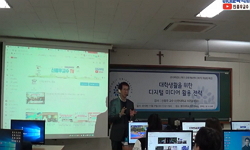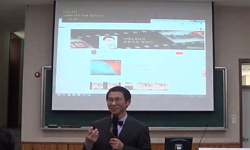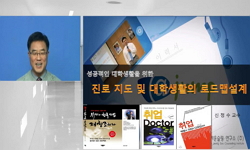본 연구는 학업과 여가에서 경험하는 권태에 따른 대학생의 유형별 분류를 통해 학습권태와 여가권태가 어떤 관계에서 존재하는가, 그리고 관계유형에 따라 학업성취도와 여가참여에 차이...
http://chineseinput.net/에서 pinyin(병음)방식으로 중국어를 변환할 수 있습니다.
변환된 중국어를 복사하여 사용하시면 됩니다.
- 中文 을 입력하시려면 zhongwen을 입력하시고 space를누르시면됩니다.
- 北京 을 입력하시려면 beijing을 입력하시고 space를 누르시면 됩니다.

학습권태와 여가권태의 경험구조 및 그에 따른 학업성취도와 여가참 여: 대학생을 중심으로 = Boredom profiles of college students in academic and leisure domains and their affects on academic achievement and leisure participation
한글로보기https://www.riss.kr/link?id=A102166320
- 저자
- 발행기관
- 학술지명
- 권호사항
-
발행연도
2016
-
작성언어
-
-
주제어
학습권태 ; 여가권태 ; 대학생 ; 학습성취도 ; 여가참여 ; Academic boredom ; Leisure boredom ; Academic achievement ; Leisure participation ; College students
-
KDC
300
-
등재정보
KCI등재
-
자료형태
학술저널
- 발행기관 URL
-
수록면
209-236(28쪽)
-
KCI 피인용횟수
2
- DOI식별코드
- 제공처
-
0
상세조회 -
0
다운로드
부가정보
국문 초록 (Abstract)
본 연구는 학업과 여가에서 경험하는 권태에 따른 대학생의 유형별 분류를 통해 학습권태와 여가권태가 어떤 관계에서 존재하는가, 그리고 관계유형에 따라 학업성취도와 여가참여에 차이가 있는지에 대해 살펴보았다. 학습권태는 부정적인 성취정서(achievement emotion) 의 하나로서 교육환경에서 보편적으로 관찰되는 경험이며, 여가권태 역시 여가에서 경험할수 있는 부정적 여가경험의 하나로 개념화되었다. 실증분석을 위해 경상북도에 위치한 대학 교에서 호텔관광경영을 전공하고 있는 학생 234명을 대상으로 설문조사를 하였으며 그 중 227부가 분석에 이용되었다. 학습권태는 Acee et al.(2010)의 학습권태척도, 여가권태는 Ragheb & Merydith(2001)의 자유시간권태척도를 이용해 측정하였다. 학업성취도는 평균학 점(GPA), 여가참여는 사전조사를 통해 도출된 36개 여가항목의 참여빈도로써 측정하였다.
학습권태와 여가권태 유형에 따라 학생들을 분류한 결과 양 영역의 권태가 중간수준인 중권 태집단, 학습권태는 높고 여가권태는 낮은 고학습권태-저여가권태집단, 학습권태와 여가권태가 모두 낮은 저권태집단, 그리고 학습권태와 여가권태가 모두 높은 고권태집단의 네 개 유형이 도출되었다. 이러한 결과는 대다수의 학생들에게 권태가 상황에 따른 경험이라기보다는 개인적 속성에 따른 경험임을 가리킨다. 군집에 따른 학업성취도와 여가참여 차이를 살펴본 결과 학습권태가 높은 이들이 낮은 학업성취도를, 여가권태가 높은 이들이 낮은 여가 참여를 보여 권태가 이들 결과변수들에 부정적 효과를 가지는 것으로 나타났다. 또한 여가 권태가 높은 이들이 학업성취도가 높은 것으로 추정되어 학업과 여가간 교차효과가 있는 것으로 나타났다.
다국어 초록 (Multilingual Abstract)
The present study investigated how boredom is experienced in academic and leisure domains, in what relation the boredom in these domains exists, and how the pattern of boredom affects academic achievement and leisure participation among college studen...
The present study investigated how boredom is experienced in academic and leisure domains, in what relation the boredom in these domains exists, and how the pattern of boredom affects academic achievement and leisure participation among college students.
The data was collected in a university in Kyungsangbuk-do region. 234 students participated in the survey of which 227 were used for the analysis. The results show that the students reported greater boredom in academic situations than in leisure. Academic boredom and leisure boredom were positively related, suggesting that personal traits play greater role in experiencing boredom than situational factors. Those with lower academic boredom profiles reported greater academic achievement, while those with lower leisure boredom had greater leisure participation. Finally it was inferred that leisure boredom negatively affected academic achievement.
목차 (Table of Contents)
- Ⅰ. 서 론
- Ⅱ. 이론적 배경
- Ⅲ. 연구설계
- Ⅳ. 실증분석
- Ⅴ. 결 론
- Ⅰ. 서 론
- Ⅱ. 이론적 배경
- Ⅲ. 연구설계
- Ⅳ. 실증분석
- Ⅴ. 결 론
참고문헌 (Reference)
1 김지영, "한국인 대학생과 중국인 유학생의 학교스트레스원이 여가제약에 미치는 영향" 대한관광경영학회 23 (23): 345-362, 2008
2 박정은, "취업준비 중인 대학생의 여가 경험 분석-자기계발 강박 현상을 중심으로-" 한국관광학회 37 (37): 205-229, 2013
3 정기선, "청소년의 인터넷 사용의 사회심리적 영향" 2 : 183-207, 2000
4 이정윤, "청소년의 음란물중독과 우울, 외로움, 충동성, 감각추구 및 자기효능감과의 관계" 한국청소년상담복지개발원 12 (12): 145-155, 2004
5 임지영, "청소년들의 내적 권태성향 및 외적 권태성향과 게임중독의 관계: 감각추구성향의 매개효과" 한국콘텐츠학회 15 (15): 317-326, 2015
6 조아미, "청소년 여가동기와 문제행동 관계에 있어서의 여가권태의 역할:폭력행동과 약물사용을 중심으로" 한국청소년학회 12 (12): 85-101, 2005
7 이철원, "중년 남성의 여가 제약과 여가 권태에 관한 질적 탐구" 한국여가레크리에이션학회 38 (38): 1-16, 2014
8 이훈영, "이훈영교수의 SPSS를 위한 데이터분석" 청람 2015
9 조희태, "여가제약과 여가권태: 중년층 의료 전문직 종사자를 대상으로" 한국여가레크리에이션학회 39 (39): 37-47, 2015
10 성중기, "여가스포츠 참여자의 여가권태, 여가제약 및진지한 여가경험에 관한 인과 관계" 한국사회체육학회 (28) : 571-580, 2006
1 김지영, "한국인 대학생과 중국인 유학생의 학교스트레스원이 여가제약에 미치는 영향" 대한관광경영학회 23 (23): 345-362, 2008
2 박정은, "취업준비 중인 대학생의 여가 경험 분석-자기계발 강박 현상을 중심으로-" 한국관광학회 37 (37): 205-229, 2013
3 정기선, "청소년의 인터넷 사용의 사회심리적 영향" 2 : 183-207, 2000
4 이정윤, "청소년의 음란물중독과 우울, 외로움, 충동성, 감각추구 및 자기효능감과의 관계" 한국청소년상담복지개발원 12 (12): 145-155, 2004
5 임지영, "청소년들의 내적 권태성향 및 외적 권태성향과 게임중독의 관계: 감각추구성향의 매개효과" 한국콘텐츠학회 15 (15): 317-326, 2015
6 조아미, "청소년 여가동기와 문제행동 관계에 있어서의 여가권태의 역할:폭력행동과 약물사용을 중심으로" 한국청소년학회 12 (12): 85-101, 2005
7 이철원, "중년 남성의 여가 제약과 여가 권태에 관한 질적 탐구" 한국여가레크리에이션학회 38 (38): 1-16, 2014
8 이훈영, "이훈영교수의 SPSS를 위한 데이터분석" 청람 2015
9 조희태, "여가제약과 여가권태: 중년층 의료 전문직 종사자를 대상으로" 한국여가레크리에이션학회 39 (39): 37-47, 2015
10 성중기, "여가스포츠 참여자의 여가권태, 여가제약 및진지한 여가경험에 관한 인과 관계" 한국사회체육학회 (28) : 571-580, 2006
11 정태상, "스포츠 참가와 여가몰입경험 및 여가권태의 관계" 38 (38): 173-182, 1999
12 김경식, "민간경비원의 여가제약과 여가권태 및 여가만족의 관계" 한국콘텐츠학회 11 (11): 459-468, 2011
13 양진연, "대학생의 여가참여유형과 여가만족, 진로성숙과의 영향관계 연구" 대한관광경영학회 31 (31): 407-426, 2016
14 김은주, "대학생의 여가제약과 여가권태, 심리적 만족간의 관계 - 전문대학 재학생을 중심으로 -" 관광경영학회 18 : 41-58, 2014
15 심재명, "대학생의 여가레퍼토리, 스트레스, 스트레스 대처" 대한관광경영학회 30 (30): 207-233, 2015
16 윤예진, "대학생의 사이버섹스 중독과 권태감, 삶의 의미, 신앙성숙도와의 관계" 한국기독교상담심리학회 18 : 187-216, 2009
17 김은주, "대학생들의 여가활동의 동기, 기능 및 여가협상 간의 관계 연구" 대한관광경영학회 30 (30): 441-464, 2015
18 하선우, "대학생 여가활동참여자의 여가활동 관여도, 여가권태 및 대학생활적응의 관계" 한국체육학회 49 (49): 293-301, 2010
19 이성철, "노인들의 사회체육활동 참여가 여가몰입, 여가권태, 그리고 고독감에 미치는 영향. "한국여가레크리에이션학회지"" 12 : 59-76, 2000
20 임지영, "남자 중학생들의 권태성향과 게임중독의 관계: 충동성의 매개효과를 중심으로" 한국콘텐츠학회 14 (14): 610-618, 2014
21 이영길, "권태감 및 여가 권태감과 청소년 약물남용과의 관계" 7 : 76-90, 1990
22 Wilensky, H., "Work, careers, and social integration" 12 : 543-560, 1960
23 Jarvis, S., "Work Avoidance as a Manifestation of Hostility, Helplessness, and Boredom" 48 (48): 174-187, 2002
24 Goetz, T., "Types of boredom: An experience sampling approach" 38 : 401-419, 2014
25 Hill, A. B., "Towards a model of boredom" 76 (76): 235-240, 1985
26 Kanevsky, L., "To produce or not to produce? Understanding boredom and the honor in underachievement" 26 (26): 20-28, 2003
27 Danckert, J. A., "Time flies when you're having fun: temporal estimation and the experience of boredom" 59 (59): 236-245, 2005
28 Artino, A. R., "Think, feel, act: motivational and emotional influences on military students'online academic success" 21 (21): 146-166, 2009
29 Eastwood, J. D., "The unengaged mind defining boredom in terms of attention" 7 (7): 482-495, 2012
30 Mikulas, W. L., "The essence of boredom" 43 : 3-12, 1993
31 Todman, M., "The dimensions of state boredom: frequency, duration, unpleasantness, consequences and causal attributions" 1 (1): 32-40, 2013
32 Vogel-Walcutt, J.J., "The definition, assessment, and mitigation of state boredom within educational settings: a comprehensive review" 24 (24): 89-111, 2012
33 Pekrun, R., "The control-value theory of achievement emotions: Assumptions, corollaries, and implications for educational research and practice" 18 : 315-341, 2006
34 Neulinger, J., "The Psychology of Leisure" Thomas 1976
35 Daschmann, E. C., "Testing the predictors of boredom at school: development and validation of the precursors to boredom scales" 81 : 421-440, 2011
36 Maroldo, G. K., "Shyness, boredom, and grade point average among college students" 59 : 395-398, 1986
37 Zuckerman, M., "Sensation Seeking: Beyond the Optimal Level of Arousal" L. Erlbaum Associates 1979
38 Newberry, A. L., "Roles of boredom and life goal in juvenile delinquency" 31 (31): 527-541, 2001
39 LePera, N., "Relationships between boredom proneness, mindfulness, anxiety, depression, and substanc use" 8 (8): 15-25, 2011
40 Goetz, T., "Relationship between achievement emotions and self-concept of ability in mathematics(Technical report)" University of Munich: Department of Psychology 2006
41 Weissinger, E., "Relation between intrinsic motivation and boredom in leisure time" 14 : 317-325, 1992
42 Todman, M., "Psychological Science Research, Theory and Future Directions" ATINER Press 1-19, 2007
43 Iso-Ahola, S. E., "Perceptions of boredom in leisure: conceptualization, reliability, and validity of the leisure boredom scale" 22 (22): 1-17, 1990
44 Tze, V. M. C., "Patterns of boredom and its relationship with perceived autonomy support and engagement" 39 : 175-187, 2014
45 Walker, G. J., "Motivation in everyday life: the case of Chinese Canadians" 50 : 116-126, 2008
46 Stavrova, O., "Modification of a School Programme in the Deutsches Museum to Enhance Students’ Attitudes and Understanding" 32 (32): 2291-2310, 2010
47 Barnett, L. A., "Measuring the ABCs of leisure experience: awareness, boredom, challenge, distress" 27 : 131-155, 2005
48 Pekrun, R., "Measuring emotions in students' learning and performance: the achievement emotions questionnaire (AEQ)" 36 : 36-48, 2011
49 Wegner, L., "Leisure boredom and substance use among high school students in South Africa" 38 (38): 249-266, 2006
50 Wegner, L., "Leisure boredom and high school dropout in Cape Town, South Africa" 31 (31): 421-431, 2008
51 Wegner, L., "Leisure boredom and adolescent risk behavior: a systematic literature review" 21 (21): 1-28, 2009
52 Caldwell, L. L., "Leisure as a context for youth development and delinquency prevention" 39 (39): 398-418, 2006
53 Iso-Ahola, S. E., "Leisure and boredom" 5 (5): 356-364, 1987
54 Stebbins, R. A., "Leisure Reflections, No.2: Boredom in free time"
55 Mercer, K. B., "Is boredom associated with problem gambling behaviour? It depends on what you mean by “boredom.”" 10 : 91-104, 2010
56 Koval, S. R., "Induced boredom constraints mindfulness: an online demonstration" 1 (1): 1-9, 2015
57 Sharp, E. H., "Individual motivation and parental influence on adolescents' experiences of interest in free time: a longitudinal examination" 35 (35): 359-372, 2006
58 Daniels, L. M., "Individual differences in achievement goals: a longitudinal study of cognitive, emotional, and achievement outcomes" 33 : 584-608, 2008
59 Van Tilburg, W.A., "In search of meaningfulness: nostalgia as an antidote to boredom" 13 (13): 450-461, 2013
60 Gardiner, M. E., "Henri Lefebvre and the 'sociology of boredom'" 29 (29): 37-62, 2012
61 Caldwell, L. L., "Health behaviors of leisure alienated youth" 18 (18): 143-156, 1995
62 Frenzel, A. C., "Girls and mathematics—A “hopeless” issue? A control-value approach to gender differences in emotions towards mathematics" 22 : 497-514, 2007
63 Csikszentmihalyi, M., "Flow: The Psychology of Optimal Experience" Harper & Row 1990
64 Daschmann, E. C., "Exploring the antecedents of boredom:Do teachers know why their students are bored?" 39 : 22-30, 2014
65 Tze, V. M. C., "Evaluating the relationship between boredom and academic outcomes: a meta-analysis" 28 (28): 119-144, 2016
66 Ahmed, W., "Emotions, self-regulated learning, and achievement in mathematics: a growth curve analysis" 105 (105): 150-161, 2013
67 Fisher, C. D., "Effects of external and internal interruptions on boredom at work: two studies" 19 (19): 503-522, 1998
68 Weissinger, E., "Effects of Boredom on Self-Reported Health" 18 (18): 21-32, 1995
69 Farnworth, L., "Doing, being, and boredom" 5 (5): 140-146, 1998
70 Weissinger, E., "Development, reliability and validity of a scale to measure intrinsic motivation in leisure" 27 (27): 379-400, 1995
71 Caldwell, L. L., "Development of a leisure experience battery for adolescents: parsimony, stability, and validity" 24 (24): 361-376, 1992
72 Ragheb, M. G., "Development and validation of a multidimensional scale measuring free time boredom" 20 : 41-59, 2001
73 Fahlman, S. A., "Development and Validation of the Multidimensional State Boredom Scale" 20 (20): 68-85, 2013
74 Harris, M. B., "Correlates and characteristics of boredom proneness and boredom" 30 : 576-598, 2000
75 Nett, U. E., "Coping with boredom in school: an experience sampling perspective" 36 : 49-59, 2011
76 Orcutt, J. D., "Contrasting effects of two kinds of boredom on alcohol use" 14 (14): 161-173, 1984
77 Shaw, S. M., "Boredom, stress and social control in the daily activities of adolescents" 28 (28): 274-292, 1996
78 Farmer, R., "Boredom proneness: the development and correlates of a new scale" 50 : 4-17, 1986
79 Watt, J. D., "Boredom proneness and psychosocial development" 133 (133): 303-314, 1999
80 Weybright, E. H., "Boredom prone or nothing to do? Distinguishing between state and trait leisure boredom and its association with substance use in South African adolescents" 37 (37): 311-331, 2015
81 Larson, R. W., "Boredom in the middle school years: blaming schools versus blaming students" 99 (99): 418-443, 1991
82 Mann, S., "Boredom in the lecture theatre: an investigation into the contributors, moderators and outcomes of boredom amongst university students" 35 (35): 243-258, 2009
83 Barnett, L. A., "Boredom in free time: relationships with personality, affect, and motivation for different gender, racial and ethnic student groups" 28 : 223-244, 2006
84 Pekrun, R., "Boredom in achievement settings: exploring control-value antecedents and performance outcomes of a neglected emotion" 102 (102): 531-549, 2010
85 Fisher, C.D., "Boredom at work: a neglected concept. School of Business Discussion Papers, Paper 19"
86 Todman, M., "Boredom and psychotic disorders: cognitive and motivational issues" 66 (66): 146-167, 2003
87 Pekrun, R., "Boredom and academic achievement:Testing a model of reciprocal causation" 106 (106): 696-710, 2014
88 Krotova, I., "Boredom Severity, Depression and Alcohol Consumption in Belarus" 2 (2): 73-83, 2014
89 Baker, R. S., "Better to be frustrated than bored: The incidence, persistence, and impact of learners’ cognitive–affective states during interactions with three different computer-based learning environments" 68 (68): 223-241, 2010
90 Fallis, R. K., "Are students failing school or are schools failing students? Class cutting in highschool" 59 (59): 103-119, 2003
91 Gasper, K., "Approaching novel thoughts: understanding why elation and boredom promote associative thought more than distress and relaxation" 52 : 50-57, 2014
92 Goetz, T., "Antecedent of everyday positive emotions: an experience sampling analysis" 34 : 49-62, 2010
93 Amos, A., "Ambivalence and uncertainty:experiences of and attitudes towards addiction and smoking cessation in the mid-to-late teens" 21 (21): 181-191, 2006
94 Iso-Ahola, S. E., "Adolescent substance abuse and leisure boredom" 23 (23): 260-271, 1991
95 Pekrun, R., "Academic emotions in students’self-regulated learning and achievement: A program of qualitative and quantitative research" 37 : 91-105, 2002
96 Acee, T. W., "Academic boredom in under- and over-challenging situations" 35 : 17-27, 2010
97 Daniels, L. M., "A longitudinal analysis of achievement goals: from affective antecedents to emotional effects and achievement outcomes" 101 (101): 948-963, 2009
98 Russell, J. A., "A circumplex model of affect" 39 (39): 1161-1178, 1980
99 Tze, V. M. C., "A Cross-Cultural Validation of the Learning-Related Boredom Scale (LRBS) With Canadian and Chinese College Students" 31 (31): 29-40, 2013
100 Caldwell, L. L., ""Why are you bored?": an examination of psychological and social control causes of boredom among adolescents" 31 (31): 103-121, 1999
동일학술지(권/호) 다른 논문
-
한식뷔페레스토랑 선택속성이 기업이미지와 고객충성도에 미치는 영향
- 대한관광경영학회
- 강재희(Kim, Jae-Hee)
- 2016
- KCI등재
-
- 대한관광경영학회
- 최강화(Choi, Kang-Hwa)
- 2016
- KCI등재
-
항공사 종사원의 직업가치관이 직무만족과 조직몰입에 미치는 영향
- 대한관광경영학회
- 조주은(Cho, Ju-Eun)
- 2016
- KCI등재
-
- 대한관광경영학회
- 임지은(Lim, Ji-Eun)
- 2016
- KCI등재
분석정보
인용정보 인용지수 설명보기
학술지 이력
| 연월일 | 이력구분 | 이력상세 | 등재구분 |
|---|---|---|---|
| 2027 | 평가예정 | 재인증평가 신청대상 (재인증) | |
| 2021-01-01 | 평가 | 등재학술지 유지 (재인증) |  |
| 2018-01-01 | 평가 | 등재학술지 유지 (계속평가) |  |
| 2017-04-01 | 학술지명변경 | 외국어명 : International Journal of Tourism Management and Science -> International Journal of Tourism Management and Sciences |  |
| 2017-03-31 | 학술지명변경 | 외국어명 : Korean Journal of Tourism Research -> International Journal of Tourism Management and Science |  |
| 2015-01-01 | 평가 | 등재학술지 유지 (등재유지) |  |
| 2011-01-01 | 평가 | 등재학술지 유지 (등재유지) |  |
| 2009-01-01 | 평가 | 등재학술지 유지 (등재유지) |  |
| 2006-01-01 | 평가 | 등재학술지 선정 (등재후보2차) |  |
| 2005-01-01 | 평가 | 등재후보 1차 PASS (등재후보1차) |  |
| 2004-01-01 | 평가 | 등재후보학술지 유지 (등재후보1차) |  |
| 2002-07-01 | 평가 | 등재후보학술지 선정 (신규평가) |  |
학술지 인용정보
| 기준연도 | WOS-KCI 통합IF(2년) | KCIF(2년) | KCIF(3년) |
|---|---|---|---|
| 2016 | 2.79 | 2.79 | 3.01 |
| KCIF(4년) | KCIF(5년) | 중심성지수(3년) | 즉시성지수 |
| 3 | 2.97 | 3.547 | 0.7 |





 스콜라
스콜라






